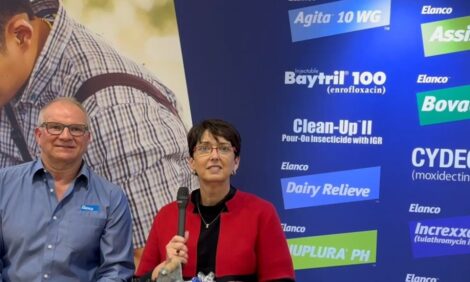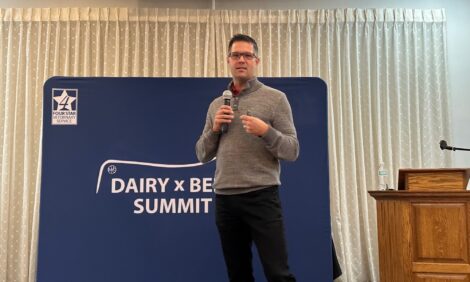



Cornell supporting US Dairy’s Net Zero Initiative
Moving the US dairy industry toward GHG reductionCornell CALS’ Nutrient Management Spear Program (NMSP) is collaborating with research institutions and dairy farms across the U.S. to help the dairy industry move toward greenhouse gas reductions while improving soil health and climate resiliency of forage production. Find out how the project started and why it matters to farmers and policymakers.
In 2020, the dairy industry boldly committed to the goal of achieving greenhouse gas neutrality by 2050. The Innovation Center for U.S. Dairy is leading research to support that goal through the U.S. Dairy Net Zero Initiative with key partners like the Soil Health Institute. The collaboration is called Dairy Soil & Water Regeneration: building soil health to reduce greenhouse gases, improve water quality and enable new economic benefits.
The project aims to discover how factors like manure source, cover crops and reduced tillage impact greenhouse gas emissions, soil health, and forage yield and quality. Funding comes from dairy industry stakeholders and a $10 million allocation from the Foundation for Food & Agriculture Research.
Research institutions in major dairy-producing states such as California, Wisconsin, Idaho, Texas, New York and Vermont partner with dairy farms to conduct the experiments.
Quirine Ketterings, NMSP director and professor of nutrient management in the Cornell CALS Department of Animal Science, and Kirsten Workman, nutrient management and environmental sustainability specialist with Cornell CALS PRO-DAIRY, are co-principal investigators on the project’s New York team.
Ketterings emphasized that standardized measurements are key to establishing the current impact of dairy systems and comparing the effects of new practices. “Every location participating in this study uses the same equipment, methodology and laboratory practices so data are directly comparable,” she said.
Perejitei Bekewe, an NMSP postdoctoral associate with the project, frequently travels to the partnering farms in central and western New York to measure greenhouse gas emissions and evaluate soil health.
“We’re studying practices that help dairy farmers develop climate resilient cropping systems without compromising yield or profit," said Bekewe. "We cannot just go and tell a farmer, ‘Hey, you have to change what you’re doing.’ We have to do the research and develop science-based guidance that’s economical for farmers.”
Rob Noble ’79 of Noblehurst Farms, the participating farm in western New York, agreed with Bekewe.
"If we’re going to change our practices, we need to understand the value. There’s a big focus on data in agriculture. But if you can’t use it, what’s the point? This data will help us better utilize our resources. That’s why we’re participating."
Josh Putman, crop manager for Noblehurst Farms, added, "The NMSP team sits down with us to explain exactly how we can use the data to improve our practices."
Workman noted the research will help farmers and the dairy industry understand benefits and challenges of management changes across the whole farm.
"What makes this project really exciting is that we can assess real cropping systems on real farms in real-time. Multiplying this across all sites involved in the project gives us very practical information about a broad spectrum of dairy production systems. And that information can inform greenhouse gas initiatives on the local, national and global level," said Workman.



